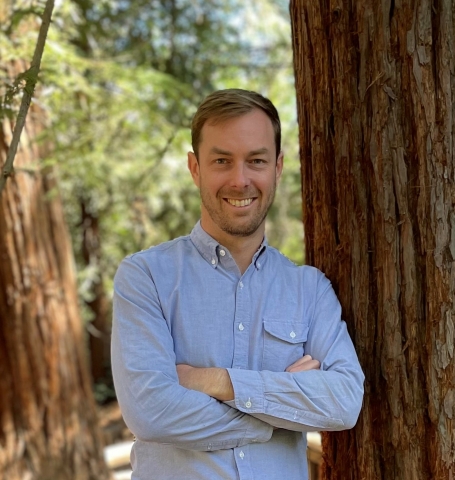The world needs to reach net zero carbon emissions by the year 2050 for the global temperature to stop increasing. According to the World Resources Institute, the UN found that current climate policies will raise the temperature by 2.8 degrees Celsius by the end of the century. However, Northern California Chapter ARCS Scholar Alum David McCollum is working to prevent this reality from happening.
As a Distinguished Scientist at Oak Ridge National Laboratory, McCollum is involved in a number of U.S. and international efforts exploring the science of transitioning to a net zero emissions society. One effort is the Net Zero World Initiative, which McCollum has been part of since its inception in 2022. According to the best available science, achieving net zero emissions globally around 2050 is necessary to avoid the worst impacts of climate change. “The idea is if we can get to a point where the sources of carbon emissions are balanced by sinks, making it net zero, then temperatures will finally plateau and eventually start to come down,” he explains.
McCollum helped build several net zero-focused programs since starting his role at Oak Ridge National Laboratory two years ago. “I have primarily been involved in scenario modeling aspects because that’s where my expertise lies,” McCollum explains. “In the Net Zero World Initiative specifically, we are working with other countries to help them develop decarbonization pathways that fit their unique situations and needs.”
While his work is essential for reducing climate change’s impact, it’s also important because of the potential risks of overhauling centuries and decades-old systems. This transition raises many unanswered questions McCollum hopes to answer with his research. “The research I do is called integrated assessment as it combines technological, social-economics, and environmental systems,” he says.
His research helps influence decision-makers and policymakers. The United Nations Framework Convention on Climate Change (UNFCCC) and the Conference of Parties (COP) cited his and his colleagues’ integrated assessment modeling work through the authoritative assessments of the Intergovernmental Panel on Climate Change (IPCC).
McCollum shares people can make their own personal difference to assist net zero efforts by focusing on reducing and reusing as part of the 3Rs: Reduce, Reuse, Recycle. “Reducing and reusing can have a massive impact when added up across society,” he states, “It’s about being more efficient with our energy and resource consumption. Every small decision translates to a much greater effect on the supply side, given energy and material losses throughout the extraction and conversion chain.”
McCollum says receiving the ARCS Scholar Award while working on his PhD in Transportation, Technology, and Policy at UC Davis was formative. The funding allowed him to go to Vienna, Austria, for a summer research fellowship with the International Institute for Applied Systems Analysis (IIASA). He transferred his work there to his PhD thesis, which had ripple effects for his entire career. “The unrestrictive nature allowed me to dream big and it opened doors for me that I never even knew were there” he says.

